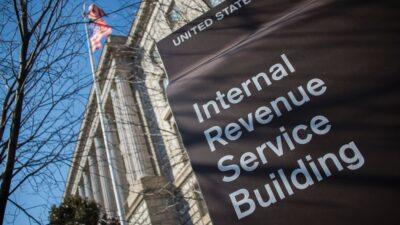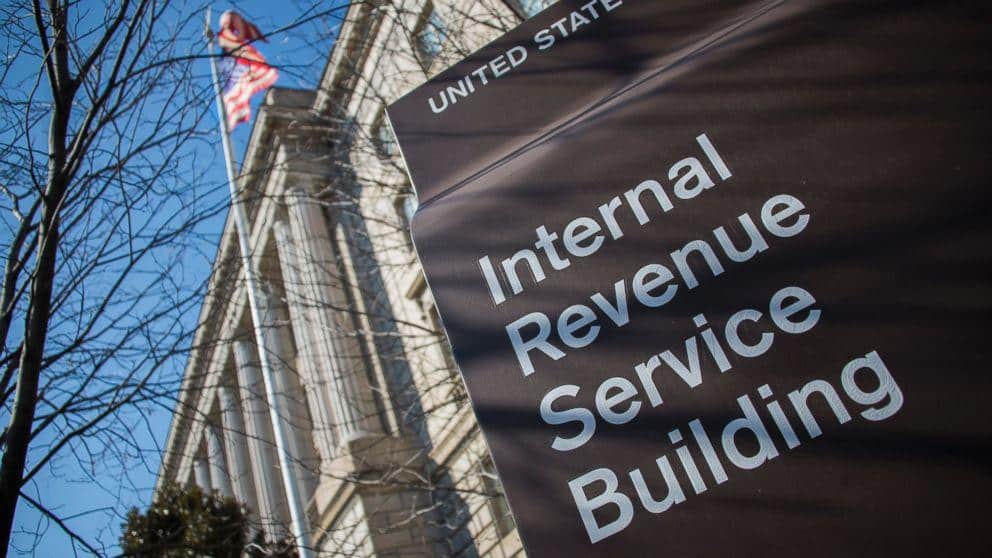
An Iowa widow faces criminal charges and saw $19,000 seized from her bank account by the IRS simply because she deposited her husband’s legally earned money in a way that allegedly avoided federal reporting requirements.
Federal prosecutors filed charges against 68-year-old Janet Malone, a resident of Dubuque, Iowa, simply because she made multiple cash deposits of less than $10,000, the Associated Press reported.
Prosecutors are accusing Malone of violating federal laws even though she was depositing cash she had legally inherited from her late husband. The laws typically are used to go against drug dealers and terrorists.
Malone made the deposits after her husband died of cancer. Shortly before he died, he told her about $180,000 in cash he had earned from three sources: his job, investments, and gambling. When she started depositing the money, Malone attracted the attention of the IRS, which alleged her of “structuring” her deposits to avoid government knowledge.
(Listen to Off The Grid Radio’s in-depth report on structuring here.)
Is the IRS Violating its Own New Policy?
For years, the IRS has been seizing money from the accounts of law-abiding citizens and business owners because they made multiple large cash deposits of less than $10,000, Off the Grid News reported last year.
Discover The Only Way Back To True Freedom And Liberty In America…
The IRS regards such deposits as a way to get around a federal law, the Bank Secrecy Act, that requires banks to report large cash deposits to the US Treasury Department. The IRS regards any such deposits as criminal regardless of where the money came from, Richard Weber, the agency’s chief of criminal investigation, told The New York Times last year.
The Institute for Justice has been at the forefront of defending innocent citizens against the IRS.
“This is shocking because it demonstrates that prosecutors are not taking seriously the IRS’ alleged policy change not to prosecute legal source structuring,” Larry Salzman, an attorney for the Institute for Justice, told AP.
Salzman is referring to a statement that Weber made to The Times in which Weber seemingly pledged to not go after citizens like Malone. His statement read:
“After a thorough review of our structuring cases over the last year and in order to provide consistency throughout the country (between our field offices and the U.S. attorney offices) regarding our policies, I.R.S.-C.I. will no longer pursue the seizure and forfeiture of funds associated solely with ‘legal source’ structuring cases unless there are exceptional circumstances justifying the seizure and forfeiture and the case has been approved at the director of field operations (D.F.O.) level. While the act of structuring — whether the funds are from a legal or illegal source — is against the law, I.R.S.-C.I. special agents will use this act as an indicator that further illegal activity may be occurring.”
The story continues below the video:
World News Videos | ABC World News
IRS Seized $242 Million from Citizens
The IRS seized more than $242 million in 2,500 structuring cases between 2005 and 2012, a report from the Institute noted. In at least a third of those cases, no criminal activity besides structuring was alleged.
The large majority of those cases were civil cases, which enabled the IRS to seize money without having to prove that a crime had been committed. Civil forfeiture cases are also easier for the IRS to win in court.
The IRS said it warned Malone’s husband against structuring, but she said she didn’t remember details of that and “was in a state of despair over her husband’s health” when she made the deposits, according to an affidavit.
“It’s no accident the IRS overwhelmingly prefers civil forfeiture to criminal forfeiture,” Salzman said. “It allows them to seize cash without the effort of investigating whether the property owner did anything wrong, let alone convicting anyone of a crime. Under civil forfeiture, the burden is then on property owners to go to court and spend a year or more trying to prove their innocence to win their money back.”
Do you believe citizens should be required to report deposits larger than $10,000 – and do you think the IRS should press charges if anyone tries to avoid the law? Share your thoughts in the section below:











